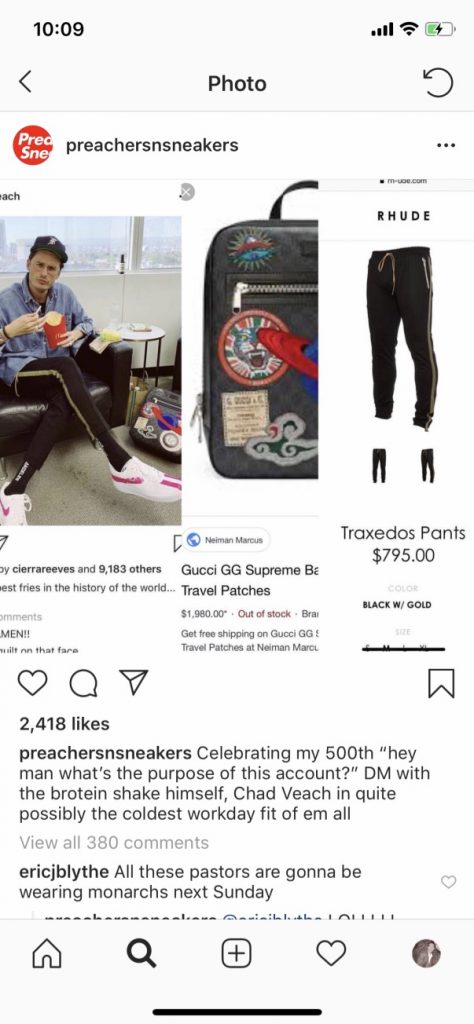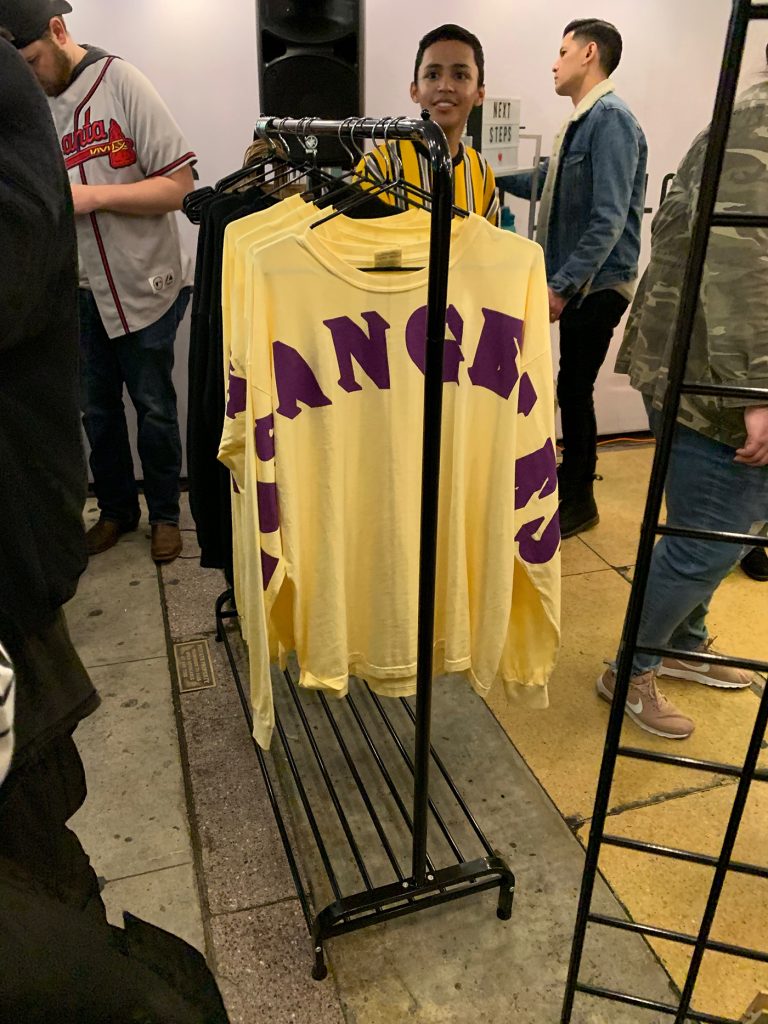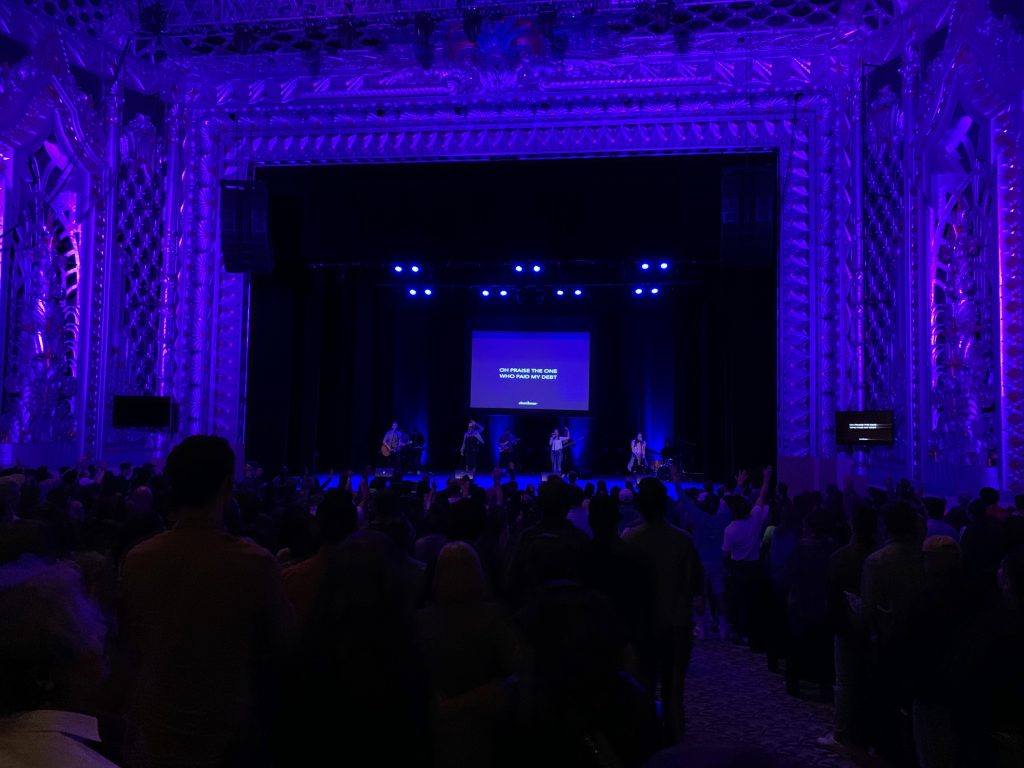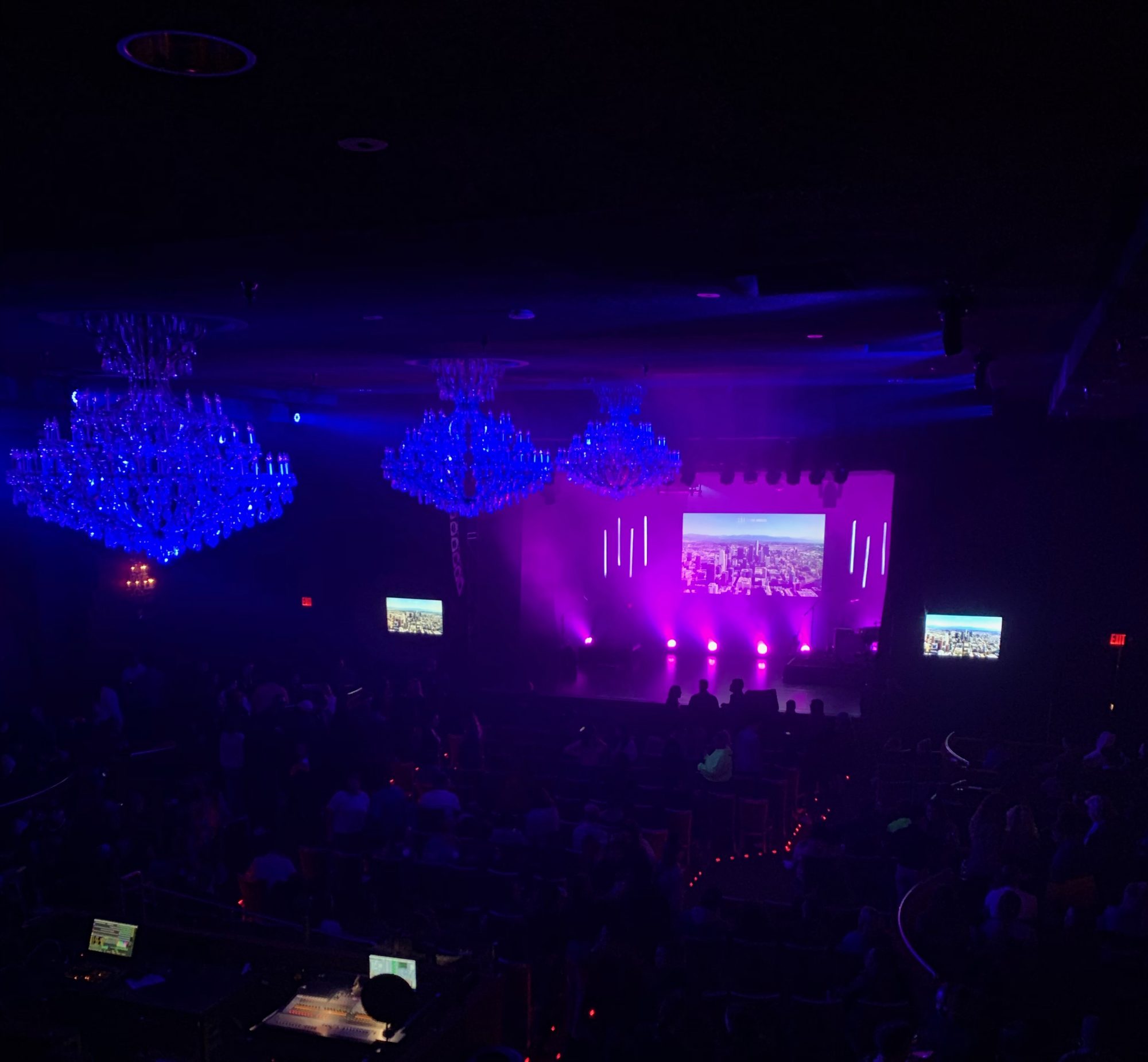In 2019 church is cool and not in a tacky or cliche way. Pastors can be spotted wearing Off-White Nikes and Bibles are tailor-made for Instagram. This new wave of evangelical Christianity has attracted a large following in America’s urban centers and is redefining what Christianity can be in contemporary America.
As many denominations struggle to attract younger generations, the approaches used by pastors to attract new congregants reflects a desire to meet and accept people for who and where they are.
“Church is essentially community, it’s people that are getting together centered around the message of Jesus and we can do that when we’re running with friends. I do that playing soccer. I do that over coffee all the time. It’s no matter what you do, if you get together with someone else and you maybe even halfway mentioned Jesus I think you’re kind of a part of the church you know. So when it comes to relating with people, I think we have a responsibility as pastors and leaders to go: ‘Let’s let’s make this more than just show up to the Saban Theater on Wednesday night at 8pm or the El Rey Theater on Sunday morning’. it’s just bigger than that.” Justin Mehl, associate pastor of Churchome Los Angeles said.
What started as the City Church in Seattle, Washington Churchome and its lead pastor Judah Smith have gained a 600,000 plus following on Instagram and fans from everyone to Justin Bieber to Life Pacific College student Nathanael Chapman.
Chapman has been attending Churchome for four months and says he enjoys it because, “Judah is relatable while making everyone feel welcomed, he has a strong relationship with Jesus and it’s fast compared to other churches.”
Judah Smith and his contemporaries including Chad Veach at LA’s Zoe Church, Rich Wilkerson Jr. at Miami’s Vous Church, and Carl Lentz at the New York branch of Hillsong have entered our cultural consciousness. Lentz baptized Justin Bieber in Tyson Chandler’s bathtub, Wilkerson officiated Kim and Kanye’s wedding, Veach hangs out with the Schwarzenegger children, and Smith also serves as team chaplain for the Seattle Seahawks.
Autumn Robinson is part of team from Los Angeles working to establish a branch of the non-denominational Mosaic Church in Seattle. She believes that the popularity of these non-denominational, performance oriented churches and their pastors lies in their acceptance of brokeness and people who have felt wronged in religious settings.
“It’s all about dismantling the idea of religion and replacing it with the radical truth that the beauty of what the church stands for is following the person of Jesus, not the tradition of religion,” she said.
Alejandro Silva grew up Catholic and attended Catholic school in his hometown of Miami and entered the University of Southern California feeling spiritually unfulfilled. At the behest of a friend he started attending Zoe Church in LA and instantly connected with pastor Chad Veach’s message of love and his relatable sermons. He was also happy to discover that Zoe has an official relationship with Vous Church, which gives him a church to go in both of the cities he calls home with similar messages and traditions.
Also attending Zoe’s Sunday services is Raquel “Rocky” Walder. Rocky is a junior at USC studying communications and theater. She acts, has a blog, promotes several brands on Instagram, and church-hopped around LA before settling on Zoe Church. She doesn’t consider herself the “prime-example” of someone who goes to church and finds a community from it, but in many ways she is.
Walder grew up half Catholic and half Jewish in Vail, Colorado and attended a Christian high school, where she gradually began to embrace elements of evangelical Christianity, even though she doesn’t consider herself fully evangelical.
“I just say (I’m) Christian. I don’t really have a label other than that, If people ask me what that means then I’ll usually say non-denominational. I guess I do participate in going to an evangelical church and the Christian group I participate in on campus has more of an evangelical mindset, but I wouldn’t really necessarily label myself in that way just because I don’t feel like I know enough about it before I put like a specific label whereas I feel like I do know a lot about what it means to be a Christian”, she said.
The growing diversity and visual aesthetic of the millennial generation is crossing over into the contemporary evangelical scene with upstart companies such as Alabaster Bibles.
Brian Chung had grown up in a Buddhist background before converting to Christianity while a student at USC. There he met his friend and eventual business partner Bryan Ye-Chung and they would go on to start Alabaster Bibles in 2016, which feature the individual books of the Bible printed on thick glossy paper alongside original abstract photography. Last year their Bibles were sold at Hillsong’s Australia conference.

“We wanted to create a Bible for people who are interested in faith and for people without a religious background. Some have said that print is dead but there have been a lot of indie magazines that have popped up. We have a growing indie magazine artspace like Kinfolk and Cereal that are growing, but what was missing was something with a faith perspective. We aren’t a creative magazine, but faith based creatives in that space,” Brian Chung said.
Seemingly overnight the wall that separated evangelical Christianity and pop-culture is gone. The idea of an evangelical pastor clad in everything from Off-White to Rick Owens has entered the meme-consciousness with the viral success of the Instagram account @PreachersNSneakers.
The creator of the account identified himself as Tyler Jones in an email and says he is a loyal churchgoer and intended the account only as a Parody. The account grew viral in a number of weeks and currently has 152,000 followers.
“I think a lot of people that go to church and give to their churches expect some level of conservatism out of their pastors because it feels like anything else would be misusing the funds the church is giving them. The follow on question to that is ‘well who is to judge whether or not the pastors are using the money well or not?’ … I think that is why this account has grown so much and driven such heated discussion,” he wrote in an email.

The co-opting of the youthful, progressive aesthetic suggests both the success and trials of existing in both Christian tradition and contemporary culture.

When asked about Alabaster’s place in this new world of Instagram and celebrity driven Christianity, Chung responded by saying: “What makes us a little bit different is that we value the collective “we” vs the “I”. Also Hillsong, Zoe, and other celebrity churches are led by white men and we’re Asian so we bring a different understanding of scripture from a minority standpoint. We’re huge on advocating for those who don’t have a voice and are on the margins. We decided for the co-authors to be all women. We wanted to bring up people who were having a hard time coming up not just in the Christian space but in general. (We’re) not about having one person who’s charismatic and preaching all the time, but having more voices and people represented.”
From Mehl’s perspective as a pastor he says, “We’re not building a church on personality. we’re building a church on Jesus. It’s not Judah’s church, it’s not Chad’s church, It’s not my church, it’s Jesus’ church.”
The approaches used by Churchome, Zoe, Hillsong, and their contemporaries can seem radical and new, but are part of a larger tradition within American evangelism.
Sociologist Richard Flory is senior director of research for the USC Center for Religion and Civic Culture. In his research on religion and urban life he sees this new wave of churches as an evolution of the baby-boomer era megachurch movement whose emphasis was on individual choice and relevance to the culture at large.
“It attracts people because it doesn’t demand allegiance, it doesn’t demand discipleship, it doesn’t demand anything that… (involves) spiritual practice. That’s not a part of what they do. It’s come here sing these songs, feel good, raise your hands ups, talk to people outside, you can get baptized if you want and then you’re gone. Maybe come back next week or next month or however often you’re going there. It’s a different model of going to church. It’s the event of being there in church and you might see a celebrity.”

While the celebrity factor drove most of the initial media coverage around these churches and their pastors, for the congregants interviewed for this story none of them said they were driven by Veach or Smith’s celebrity affiliations, or were even aware of it all. It was the relatability of their sermons that drew them there and keeps them coming back.
Mehl echoed that sentiment by saying, “When it comes to relating to people and that authentic genuine love for God and love for people I think that’s implicitly why the church has kind of become relatable. And you can even say that the church has become slightly trendy and I’m like, ‘Cool, Like I’ll use trendy to reach people that I never reached before’”.
